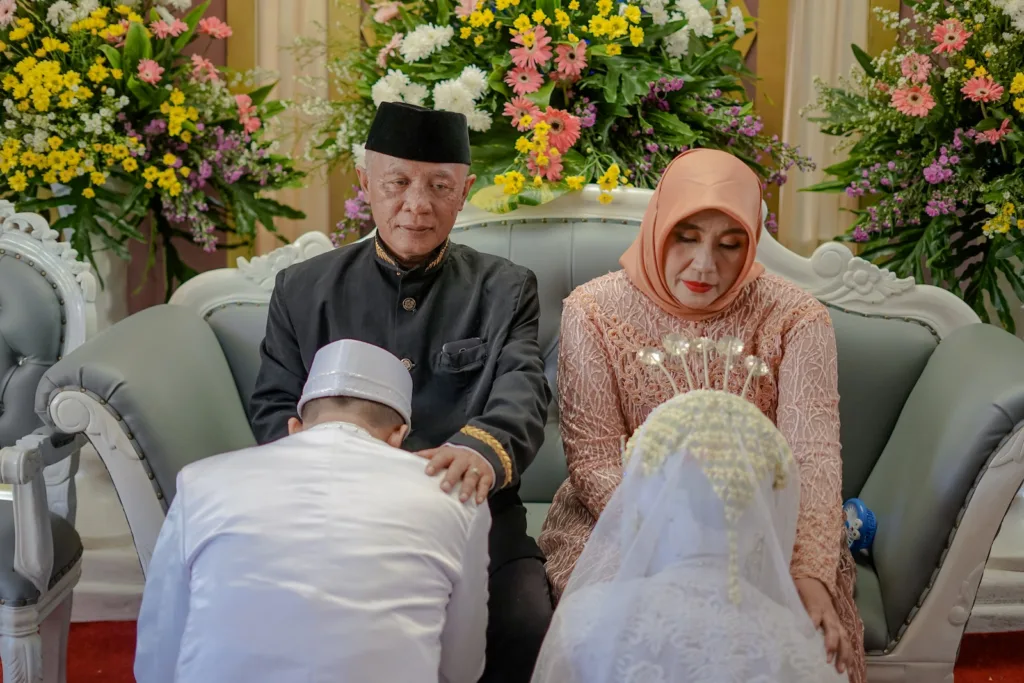What does it take to make cross-cultural marriages work?
In our increasingly globalized world, cross-cultural marriages and intermarriages are becoming more and more common. However, these unions also come with unique challenges that require openness, flexibility, and compromise from both partners.
In this post, we will explore 8 essential tips for navigating key issues such as gender roles, family involvement, religion, and parenting in an interracial and intercultural marriage.
By understanding potential points of conflict and learning skills like empathy, communication, and patience, you can build a loving and lasting cross-cultural marriage.
Follow our research-backed guidance to gain insight into your partner’s perspective. With mutual respect and willingness to learn, you can celebrate your differences and create a strong lifelong bond.
Key Takeaways
- Intermarriage is increasing, with more couples from different races and cultures tying the knot
- Cross-cultural marriages face unique challenges, such as differing gender roles, family structures, and social attitudes
- Religion and parenting styles can also be significant issues in these marriages
- Both partners should be open, flexible, and willing to navigate unexpected challenges in a cross-cultural marriage
Challenges to Expect in Cross-Cultural Marriages
You should expect extra challenges in a cross-cultural marriage, including differences in gender roles, family structure, social attitudes, religion, parenting styles, and the potential for living abroad.
Food traditions and language barriers can also pose potential challenges.
For example, in some cultures, food is an important part of daily life and traditions, and it may be difficult for a partner from a different culture to adapt to the new cuisine.
Similarly, language barriers can make communication difficult, particularly if one partner isn’t fluent in the other’s language.
It’s important to approach these challenges with an open mind and a willingness to learn and adapt.
It may be helpful to research and educate yourself on your partner’s culture and traditions, as well as to communicate openly and honestly about your expectations and needs.
Patience, understanding, and a willingness to compromise can lead to healthy cross-cultural relationships that are successful and fulfilling.
Family and Gender Roles
Understanding family and gender roles in different cultures is crucial before marrying someone from a different background.
Cultural expectations regarding the roles of men and women, as well as the importance and involvement of extended family members, can vary significantly. Here are three considerations to keep in mind:
- Discuss expectations: It’s important to have open and honest communication about each partner’s expectations regarding gender roles and family involvement. This can help avoid misunderstandings and resentment in the future.
- Learn about family structures: Take the time to learn about the cultural norms regarding family structures and the roles of extended family members. This can help you better understand your partner’s perspective and avoid cultural clashes.
- Be prepared to compromise: Both partners may need to compromise on certain cultural expectations to make the marriage work. This can be particularly challenging when it comes to family involvement, but setting boundaries and finding a balance that works for both partners is key.
Cross-cultural marriages can be a beautiful and enriching experience, but they also come with their unique set of challenges.
By understanding and respecting cultural expectations, and communicating openly and honestly with your partner, you can navigate these challenges and build a strong and fulfilling marriage.
Religion and Parenting Differences
Navigating religious and parenting differences can be a challenge in cross-cultural relationships.
When partners come from different religious backgrounds, it’s important to establish open interfaith communication early on in the relationship.
Discussing beliefs, values, and practices can help both partners understand and respect each other’s faiths. Additionally, agreeing on how to raise children in a cross-cultural and interfaith household is crucial.
Compromises can be made that respect both partners’ beliefs, such as celebrating both religious holidays or finding common values to instill in their children.
Along with religion, parenting styles may differ significantly in different cultures. It’s important to acknowledge and respect each other’s approaches to parenting and agree not to undermine each other’s styles.
Both partners can learn from each other and find common ground in their parenting values.
It may also be helpful to seek guidance from a therapist or counselor who specializes in cross-cultural relationships.
Ultimately, cultural compromise and open communication are key in navigating religious and parenting differences in a cross-cultural marriage.
Impact of Cross-Cultural Marriages on Children’s Identity Formation
When it comes to the effect of cross-cultural marriages on children’s identity formation, there are a few key factors to consider.
First, parental mediation plays a crucial role in helping children navigate their multicultural upbringing.
This means that parents need to be proactive in discussing and teaching their children about their different cultural backgrounds, as well as helping them understand how those backgrounds intersect and interact.
Additionally, children in cross-cultural marriages may face unique challenges when it comes to forming their own identity. They may feel a sense of confusion or even conflict as they try to reconcile different cultural norms and expectations.
However, with the right support from their parents and community, children in cross-cultural marriages can develop a strong sense of self that incorporates and celebrates their diverse heritage.
Take the time to learn about your partner’s culture and traditions, and be open to new perspectives and ways of doing things. When conflicts arise, try to find common ground and come up with a solution that works for both of you.
Conclusion
Before you tie the knot with your cross-cultural partner, it’s important to be patient, open-minded, and willing to learn from each other to overcome these challenges.
Think of it like two puzzle pieces coming together, creating a beautiful picture. Embrace your differences and use them to complement each other, rather than creating a divide.
It’s important to approach a cross-cultural marriage with an open mind and a willingness to challenge your own assumptions and stereotypes, while also navigating the expectations of your partner and their culture.
Ultimately, a successful cross-cultural marriage requires patience, communication, and compromise.
Remember that every culture has its unique customs, values, and beliefs, and it’s essential to respect and understand each other’s differences
Make an effort to communicate clearly and openly, while also being sensitive to cultural differences. By acknowledging and working through these differences, couples can build a more fulfilling relationship.
By doing so, you create a strong relationship that celebrates and embraces your unique cultural backgrounds, knowing that with the right mindset, your love can conquer any obstacle.
Best of luck on your journey together!
Frequently Asked Questions
How do cultural differences impact communication in a cross-cultural marriage?
Communication in a cross-cultural marriage can be impacted by language barriers and differences in nonverbal communication.
When partners come from different cultures, they may have different communication styles or use different languages, which can create misunderstandings and frustrations.
What are some common misconceptions about cross-cultural marriages?
Challenging stereotypes and navigating expectations are crucial aspects of cross-cultural marriages, as there are often misconceptions surrounding these types of unions.
Many people assume that cross-cultural marriages are doomed to fail due to cultural differences, but this isn’t necessarily true.
While there are certainly challenges to overcome, such as differing gender roles or family structures, with open communication and a willingness to learn and compromise, these marriages can be successful and fulfilling.
What strategies can couples use to navigate cultural clashes in their marriage?
In a cross-cultural marriage, cultural clashes are bound to happen, but conflict resolution and compromise are key strategies to navigate them. It’s important to approach these clashes with a mindset of cultural education and understanding.
Remember, compromise doesn’t mean sacrificing your beliefs or values, but rather finding a way to meet in the middle.
With patience, empathy, and a willingness to learn, couples can successfully navigate the challenges and celebrate the richness that comes with a cross-cultural marriage.
How do cross-cultural marriages impact one’s sense of identity and belonging in their community?
Cross-cultural marriages can have a significant impact on one’s sense of identity and belonging in their community. It’s common to experience feelings of isolation or cultural dissonance, which can take a toll on mental health.
However, cross-cultural marriages can also broaden one’s perspective and ultimately lead to personal growth.
In terms of career opportunities, cross-cultural marriages can provide unique advantages such as language skills and cultural knowledge, but they may also present challenges such as discrimination or limited job opportunities in certain areas.





